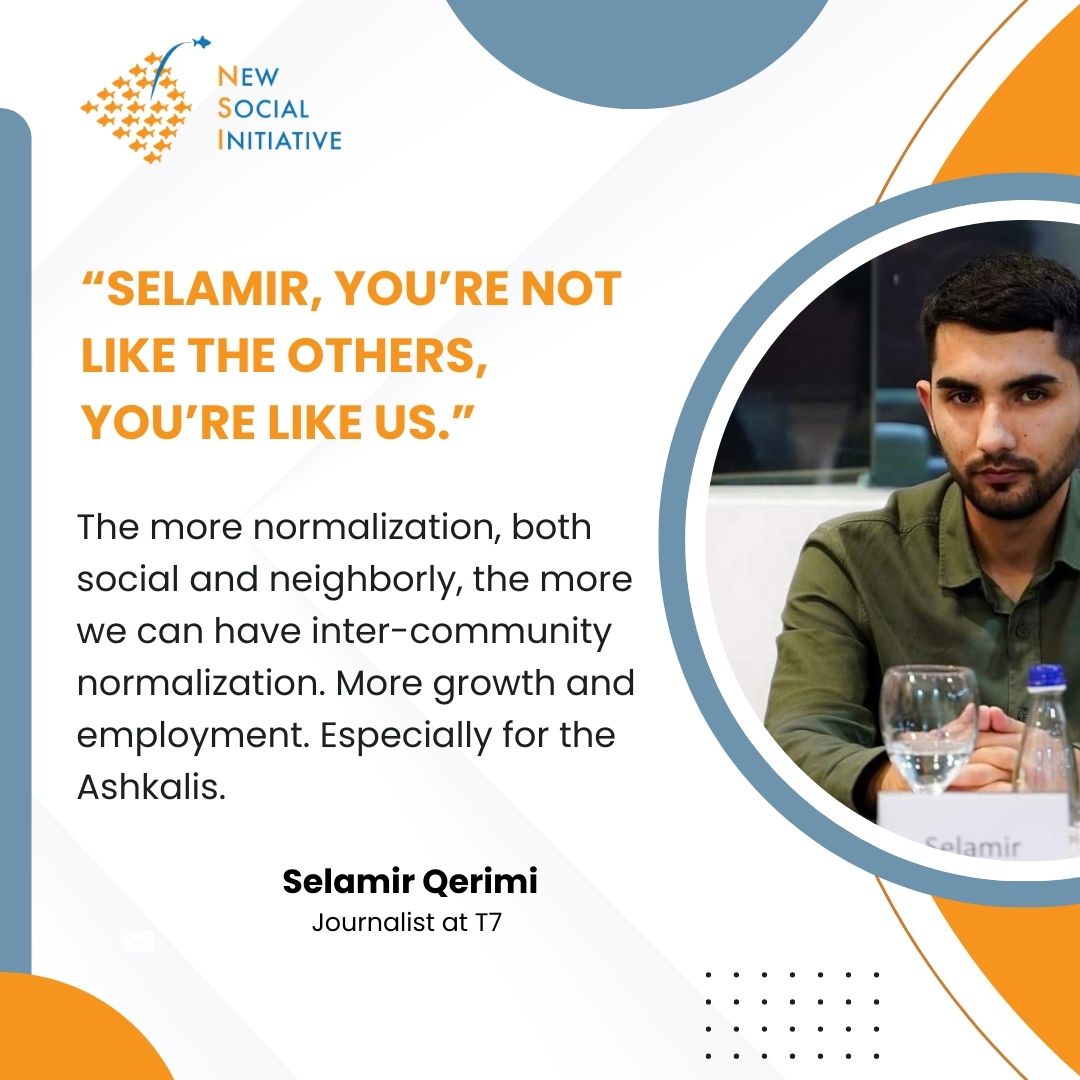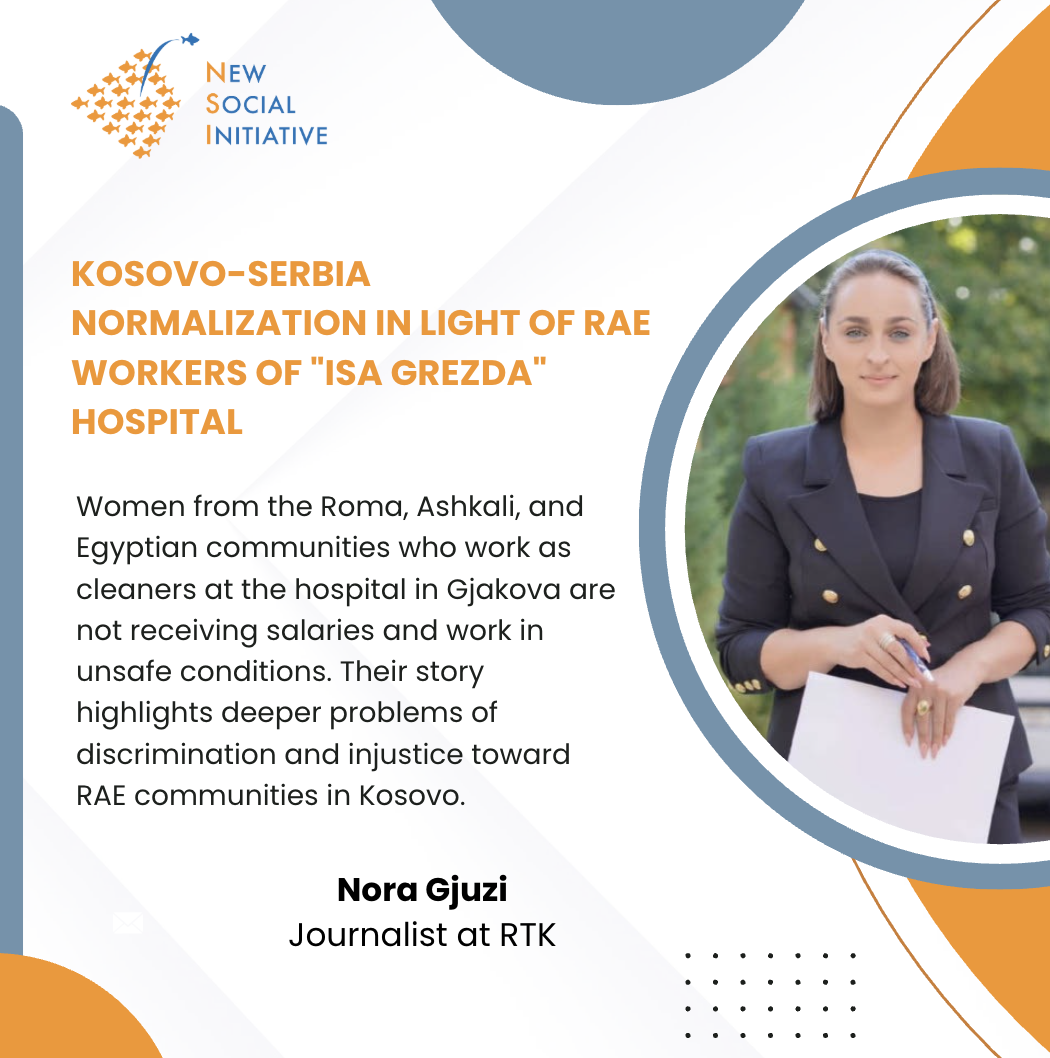How many agreements need to be signed for normalized relations between the two neighbors?
Ten years have passed since the beginning of the technical dialogue between Kosovo and Serbia, and both countries are still aiming to reach a comprehensive agreement. This agreement intends to: address all their unsolved issues, allow them to advance in their paths towards the European Union, create new opportunities, and improve the lives of their citizens.
The EU-facilitated dialogue is meant to assist the normalization of relations between these two countries, but also within the communities in Kosovo: meaning the country and its ethnic Serb citizens, by facilitating their access to education and employment, and by making them feel more secure and protected. In practice, however, it has not yielded the expected results. The dialogue process lacked transparency, since the very beginning and has failed to earn public support in both countries, Kosovo, and Serbia. According to a survey conducted by Kosovar Centre for Security Studies and Belgrade Centre for Security Policy (2021), 80 percent of the Kosovar respondents and 92 percent of the Serbian ones do not perceive to have had any personal benefits from the dialogue.
In reality, 38 agreements have been reached, fifteen of which are considered agreements and twenty-three sub-agreements. But the question that remains is: How many more agreements have to be signed for the relations between two ethnicities to be considered as “normalized” relations? Reconciliation, on the other hand, remains a distant dream.
Out of these 38 agreements, five remain unimplemented: Mutual Recognition of University Diplomas; Association/Community of Serb-Majority Municipalities in Kosovo; Cadastral Records; Energy; and Removal of Barricades and Revitalization of the Bridge in Mitrovica. Nonetheless, even the agreements which are perceived as implemented or partly implemented, are not always serving citizens’ needs and many violations continue to occur from both sides.
For instance, despite the existence of a simple agreement, like the Freedom of Movement, which is supposed to facilitate the free movement of Serbian and Kosovar citizens, (by using their respective official documents, including the recognition of driver’s licenses and vehicle license plates) they still hesitate to cross the border. In this regard, 67 percent of Kosovars claim they would not feel safe to travel to Serbia with Kosovo car plates. Even when they use the Serbian airports, as a transit to third countries, there is this uncertainty whether they will be able to reach their destination without encountering any problems when their passport is verified at the exit.
In many cases- if allowed- they will decide to go for the longer/more expensive route just to avoid any issues which might occur at the border/airport.
The same agreement aims at normalizing the freedom of movement within Kosovo, particularly between its northern and southern territories, respectively with regards to the functionalization of the Mitrovica Bridge. However, due to attacks and issues occurring in North Mitrovica, Kosovars do not feel safe visiting that part of the country. The same goes for Kosovo Serbs. The general perception of the safety to travel and visit their relatives into Albanian-majority territories remains low. A study conducted by Group for Legal and Political Studies (2020), concludes that there is an absence of feeling of belonging among Serb communities living in Kosovo which is further impeding the creation of an inclusive nation. The ethnic Albanians in Serbia, on the other hand, are also feeling left out from the dialogue process and they have recently started claiming that Belgrade is disregarding the addresses of Presevo valley citizens in a silent process of ethnic cleansing.
The “economic normalization of relations” was another desired positive outcome of these negotiations. The initial steps towards reaching such cooperation between the two countries have been taken by signing an agreement on customs stamp which aims to allow the normal exchange of goods between Kosovo and Serbia. This agreement progressed in February 2020, with the mediation of the US under Trump’s administration, Kosovo and Serbia agreed to establish a direct flight route between Pristina and Belgrade and a railway link between the two countries. Although significant improvement has been made in increasing Kosovo’s exports to Serbia (and vice versa), there are still massive gaps that hinder the economic normalization between the two countries. For instance, Kosovo exporters encounter obstacles at the customs where they are stopped for several hours to enter Serbia. Not to mention the cases when Serb parallel customs authorities use the provocative stamps stating ‘Pristina and Kosovska Mitrovica Customs.’ The international mediators have hoped that making the attainment of these economic agreements by the two countries, would have a positive spillover effect into the political arena. Even though that would have been a good strategy, unfortunately, like with most of the agreements, this one has also been used by both governments for their political or even populist ends. The above-mentioned issues as well as the imposition of 100% tariffs on goods from Serbia and Bosnia and Herzegovina as a counter-response to Serbia’s aggressive lobbying against Kosovo’s membership in INTERPOL, can be considered as proof.
With regards to the high-level meetings, we can notice some attempts towards the continuance of the dialogue, but to what end? It is evident that so far, not only that a common language does not exist, but even the so-called “normalization of relations” – which merely indicates the creation of a non-threatening environment for both communities – has not been attained. For as long as citizens feel unsafe and threatened to move freely within their territory as well as across the border, it is difficult to admit that the relations have been normalized.
One thing that we can confirm for sure is that the dialogue process has been politicized by both governments. We have thus far seen that both ruling elites, in Kosovo and Serbia, have used the dialogue and its agreements to serve their political goals and personal interests. For as long as Kosovo refuses to implement the reached agreements, particularly ASM, it will look as though Serbia is fully engaged in the process and ready to compromise. Serbia’s President, Aleksander Vučić, is using this strategy to control public mood which could buy him time to win another five-year term in the presidential election scheduled for 2022. Considering that 64 percent of Serb citizens rely on television particularly on the public broadcaster (RTS), the government can and is easily manipulating and shaping citizens’ opinions, but merely for their gains and not for the normalization of relations between the two communities.
To avoid a standstill or a deterioration of the situation, the future of the two countries and their people must not be determined by a small circle of ruling political elites, either national or international.
What is already known is that the normalization of relations (at least in this case) does not stand for reconciliation, considering that even peaceful coexistence is not sufficient to reach a harmonization between the two ethnicities. The normalization of the Kosovo-Serbia relations is the initial step that both the governments and its people should aim for. The governments should put their utmost focus and efforts on genuinely implementing the agreements which have been reached until now in the framework of the talks for the normalization of relations, without rushing into a final agreement.
I do not doubt that bottom-up initiatives, including a consultation process and citizen participation, could facilitate this process. Both Serbia and Kosovo require internal discourse. Vučić has begun an internal public discussion in Serbia, but his approach has been criticized domestically and has mostly failed to reach its goal or produce results. Kosovo’s Prime Minister Albin Kurti, on the other hand, is given the chance to not only start an inter-ethnic dialogue in Kosovo but also a dialogue between different Albanian forums and individuals as well as create a cross-party consensus in Kosovo.
CSOs (Civil Society Organization) could also play a role in this process, by organizing discussions among themselves but also with regular citizens. These kinds of discussions would serve as a bridge between the two communities in order to advance the dialogue’s implementation through a direct mutual contact, as well as to communicate the dialogue’s potential benefits to the broader society. Additionally, they would help citizens to not only rely on media and be manipulated by their respective governments but to shape their own opinions and foster relationships and connections with the other community.
The removal of all trade obstacles and the promotion of economic connection between the two nations, and beyond, will also undoubtedly contribute to the normalization of inter-ethnic relations. Political or diplomatic relations should not hinder any area of economic cooperation between the countries, especially the ones that can directly influence citizens’ lives. This then would lead to a non-politically driven process between different segments of society which should be strengthened and supported by the EU so that it becomes more inclusive, potentially as a way of exchanging contrasting opinions and devaluing nationalist language.
Reconciliation is a process that would be initiated as a result of the conclusion of the normalization of relations. It is undeniably a more complex and comprehensive, societal process, which would require mutual acknowledgment of past suffering and the establishment of specific bilateral mechanisms to deal with the antagonistic regional past. More effort needs to be done at the institutional level in order to investigate the past violations; bring justice to victims; solve cases of missing persons; revise and harmonize history textbooks and so on. But, before reaching this point, authentic and honest leadership is needed, the one with unpretentious attempts to prepare the public for compromise.
Within Kosovo Collective Op-Ed series
Opinions expresses in this oped series do not necessarily represent those of the Balkan Trust for Democracy, the German Marshall Fund of the U.S. (BTD), U.S. Agency for International Development (USAID), or the U.S. Government.
Project is supported by the Balkan Trust for Democracy of the German Marshall Fund of the U.S. and USAID.










